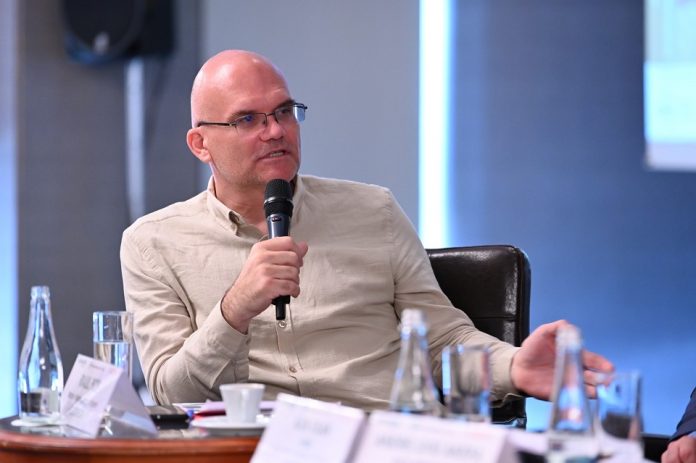“Romania lacks a strong governance structure in waste management. The responsibilities and intervention instruments are unclear and unassumed, the data to base decisions on is scarce and unreliable, the political will is unexistent, besides empty public claims,” Raul Pop, Waste Management Expert, ECOTECA told Sustainability Today.
“We need to learn how to extend the useful lifespan of each single kilo of resource and, when we fail to do so, we need to learn to return the material into production and usage, via repair, repurposing, or recycling. This is circular economy.”
How can Romania accelerate its transition to a circular economy? Why is this important for the country?
While costs of all raw materials, energy, transportation, and labor is on significant rise, Romania is literally throwing away millions of tons of its resources, yearly. If we count also the industrial (extraction, production, spillage) waste the situation is dramatical.
We need to stop this immediately, learn how to extend the useful lifespan of each single kilo of resource and, when we fail to do so, we need to learn to return the material into production and usage, via repair, repurposing, or recycling. This is a circular economy.
For accelerating the process, we need to map, assign, and set enforced responsibility and deadlines to each entity currently wasting resource. Of course, each case has its specifics, a mining operation has completely different challenges than retail, banking, transportation, or agriculture.
What are the current challenges for Romania to increase its degree of circularity?
Firstly, as in waste management’s case, Romania lacks a strong governance structure. The responsibilities and intervention instruments are unclear and unassumed, the data to base decisions on is scarce and unreliable, the political will is inexistent (besides empty public claims).
In your perspective, which should be the focus of Romanian authorities regarding the circular economy?
Establish a mandatory reporting framework on recycled raw materials in total used materials, immediately followed by an actual target for recycled content. Just imagine what would happen to mineral waste coming from metallurgy if the roadbeds would mandatorily include a 10 percent recycled aggregates. Imagine also how such a decision would release some of the pressure on natural aggregates, with its severe impact on rivers and biodiversity.
What are the initiatives of ECOTECA to improve Romania’s circular economy?
We try to measure and expose. For the time being, we have access to cheap, but underused official data on recycling, materials usage, infrastructure. We have also access to International best practices and European sustainability trends. Those are all public, one Google search away for everybody. We assumed a mission to let decision makers be aware of these resources, maybe with some extra contextual details, and assist citizens and organizations to ask for better public management and governance systems.
What kind of policies and initiatives should be tackled more to generate the strongest impact in terms of reducing waste and creating a stronger green environment?
Data-based decisions, clear responsibilities, and quick corrective interventions. We have laws, let’s enforce them!
What are the priorities and objectives for the ECOTECA association in 2023 and in the short term?
We run several systemic projects (individual details can be found on our website, at ecoteca.ro/projects), focused on capacity and instruments development for better selection of waste, technical capabilities for journalists covering environment and climate, transparency, and data availability. We work with schools, municipalities, other NGOs, several banks, recyclers, producers. We try to leverage technology as much as possible to scale-up our impact towards as many Romanian organisations as possible.
What are your main concerns for the foreseeable future?
We are too slow, as a society, as compared to the speed the world is changing. We still struggle about waste, sanitation, illiteracy and sewage while the rest of Europe deals with circularity, gig economy and AI.
What message would you like to convey to the stakeholders regarding the circular economy transition?
Start today, it is going to be your competitive advantage on the short term! Simultaneously, follow and adjust to trends before you reach a point when your business or wellbeing is under threat. Burying your head in the sand doesn’t make the change wave go away.




